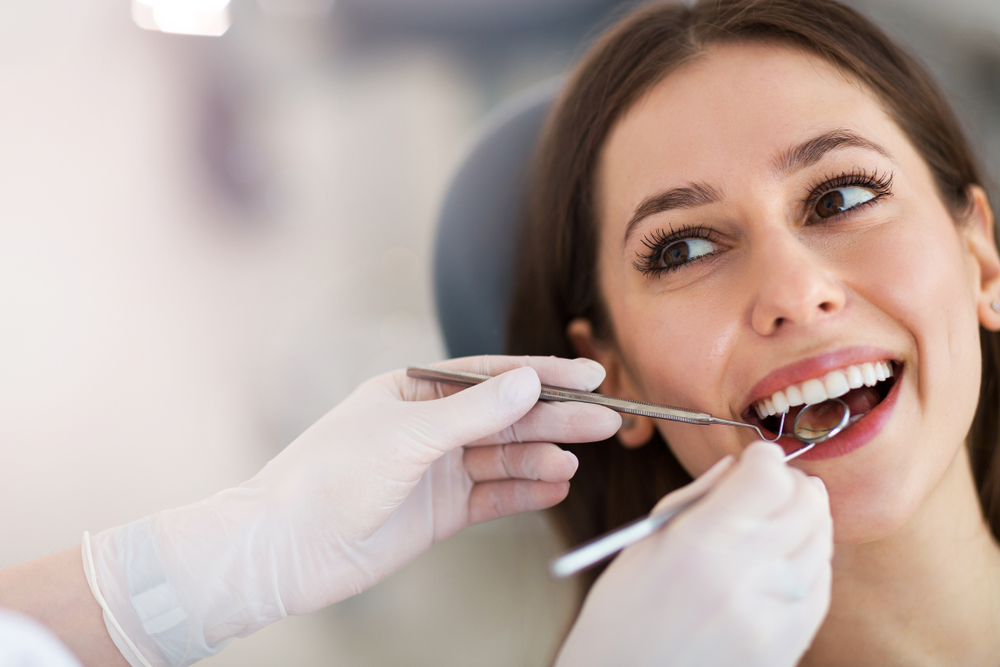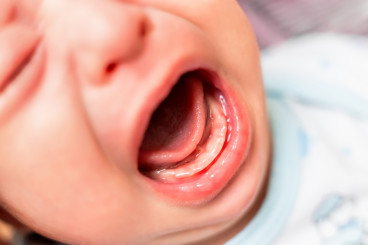Importance of Regular Dental Cleanings: Preventing Gum Disease
Inside this article, we delve into the significance of regular teeth cleanings. Explore the recommended frequency, benefits of professional plaque and tartar removal, and how these cleanings play a vital role in maintaining oral health.

Maintaining good health is vital for overall health, and cleanings play a crucial role in achieving this goal. Dental cleaning, also known as prophylaxis, involves the removal of plaque from the teeth, preventing tooth decay, cavities and gum disease, and various other health issues. In this article, we will delve into the significance of teeth well-being, highlight the recommended frequency of cleanings, and discuss the benefits of professional plaque removal. Also, we will look at the potential savings on this procedure through the
Dr.BestPrice dental auctions. Get your teeth cleaned and enjoy a great smile!Regular Dental Cleaning Prevents Tooth Decay
Tooth decay, commonly known as cavities, is a prevalent oral issue that can lead to pain, infection, and tooth loss. Regular cleanings are essential in preventing tooth decay. Despite brushing and flossing diligently, it is challenging to completely eliminate plaque. Over time, the accumulation of these substances can weaken the enamel and create an environment conducive to decay formation. Dentists remove the accumulated plaque, reducing the risk of tooth decay and preserving the natural strength of the teeth.
Dental Cleaning Against Gum Disease
Gum or periodontal disease, is a serious health condition that affects the gums and the underlying bone structure. It begins with gingivitis, characterized by red, swollen gums that may bleed easily. If left untreated, gingivitis can progress to periodontitis, which can cause gum recession, tooth loss, and even affect systemic health. Cleanings are crucial in preventing this disease by removing plaque buildup, which are the primary culprits behind its development. The removal of these harmful substances helps maintain healthy gums, preventing inflammation and infection.
Relationship Between Oral and Overall Health
Maintaining good oral hygiene through regular dentist visits is important not just for dental health, but overall well-being as well. Recent studies have found connections between periodontal (gum) disease and health problems like diabetes, heart disease, and stroke. Persistent gum inflammation caused by plaque.
Keeping teeth and gums healthy reduces the risk of these systemic issues by preventing or treating diseases early on. It allows bacteria to enter the bloodstream and travel to other parts of the body. This inflammation has been shown to increase insulin resistance in diabetes and contribute to fatty plaque buildup in arteries. Reducing gum inflammation through cleanings helps avoid such systemic spread of oral microbes. It's clear oral care plays a significant role in total health and quality of life by preventing chronic widespread inflammation.
Whole-Mouth Health Approach
Looking at oral care as a whole-mouth approach helps keep teeth and tissue throughout the entire oral cavity in good condition. In addition to traditional cleaning areas, dentists focus on brushing demonstration and other areas easy to overlook at home like between back teeth, roof of the mouth and tongue. The hygienist will carefully inspect all tooth surfaces and use small instruments to clean in hard to reach spaces.
They also examine the lips, floor of the mouth, inner cheeks and under the tongue for any abnormalities. Regular examinations allow early discovery of lumps, bumps or mouth sores which if caught sooner results in better treatment outcomes. A comprehensive evaluation from a hygienist trained to spot concerns leads to maintaining total oral health now and reduced risks down the road. They can also monitor for conditions like cavities, oral lesions or potential oral cancers.
Recommended Frequency of Dental Cleanings
The American Dental Association (ADA) recommends visiting a dental professional for a cleaning at least once every six months. However, the frequency may vary depending on individual health needs. Some individuals, such as those with a history of gum disease or a higher risk of dental issues, may require more frequent dentist visits. Dentists evaluate each patient's health condition and recommend the appropriate interval between cleanings to ensure optimal oral hygiene.
Benefits of Professional Plaque and Tartar Removal
While regular brushing and flossing are essential components of oral hygiene, they are often insufficient to remove all plaque buildup. Professional dental cleanings offer several benefits beyond what regular home care can achieve. Dental hygienists use specialized instruments to meticulously remove tartar from hard-to-reach areas, such as the gumline and between the teeth. This thorough cleaning helps prevent the development of dental issues, including cavities.
Furthermore, dental health care provides an opportunity for early detection of dental health problems. During the cleaning appointment, the dental professional examines the teeth and gums for signs of decay, oral cancer, and other abnormalities. Early detection allows for prompt intervention and treatment, minimizing the potential damage and improving the chances of successful outcomes.
Types of Dental Cleanings
There are different levels of dental cleanings depending on a patient's dental needs. For most adults, a standard cleaning or prophylaxis removes plaque above and below the gumline. For patients with gingivitis or periodontitis, a scaling is needed to thoroughly clean deep below the gumline.
During this type of cleaning, the hygienist will carefully scrape along the tooth root surface and below the gumline with special dental instruments to remove toxins, plaque in these deeper areas. They may take additional time and care for patients with more severe cases. Dental hygienists may also perform a periodontal maintenance cleaning for continued gum health support after other treatments. Expect tooth polishing and examination of gum recession during appointments tailored to each individual's risk factors and medical history.
D1110 - Prophylaxis (cleaning)
This code represents a routine dental cleaning for a patient with generally healthy gums and teeth.
D4341 - Scaling / root planing (four or more teeth per quadrant): This code is used when a deep cleaning is required to treat periodontal disease, involving removing tartar from the roots of the teeth.
D4342 - Scaling (one to three teeth per quadrant): Similar to D4341, this code is used for a deep cleaning procedure but is specific to a smaller number of teeth per quadrant.
D4910 - Periodontal maintenance: This code is used for ongoing maintenance visits following the completion of periodontal treatment, typically involving preventive dental care the recurrence of gum disease.
Floss your teeth, use fluoride and polish your teeth to keep your beautiful smile!
Conclusion - How to Save Money on Dental Cleanings
Maintaining oral health is essential for overall well-being, and cleanings play a crucial role in achieving this objective. They help prevent tooth decay, and other health issues by removing plaque / tartar buildup. Following the recommended frequency, as suggested by dental professionals, ensures optimal oral hygiene. The benefits of professional tartar removal go beyond what regular home care can accomplish, allowing for early detection of dental health problems. By prioritizing professional cleanings, individuals can enjoy a healthy and vibrant smile while minimizing the risk of oral health complications.
Cleanings can help finding oral health issues early, good oral health is important for you and your overall well-being. So remove plaque and tartar and get you teeht cleaned by great dentists near you. Ready to prioritize your health? Explore affordable dental care options and maximize your savings today. Visit the Dr. BestPrice dental auction service to find low-cost dentists near you and unlock exclusive dental treatment savings. Don't miss out on budget-friendly dental solutions.



